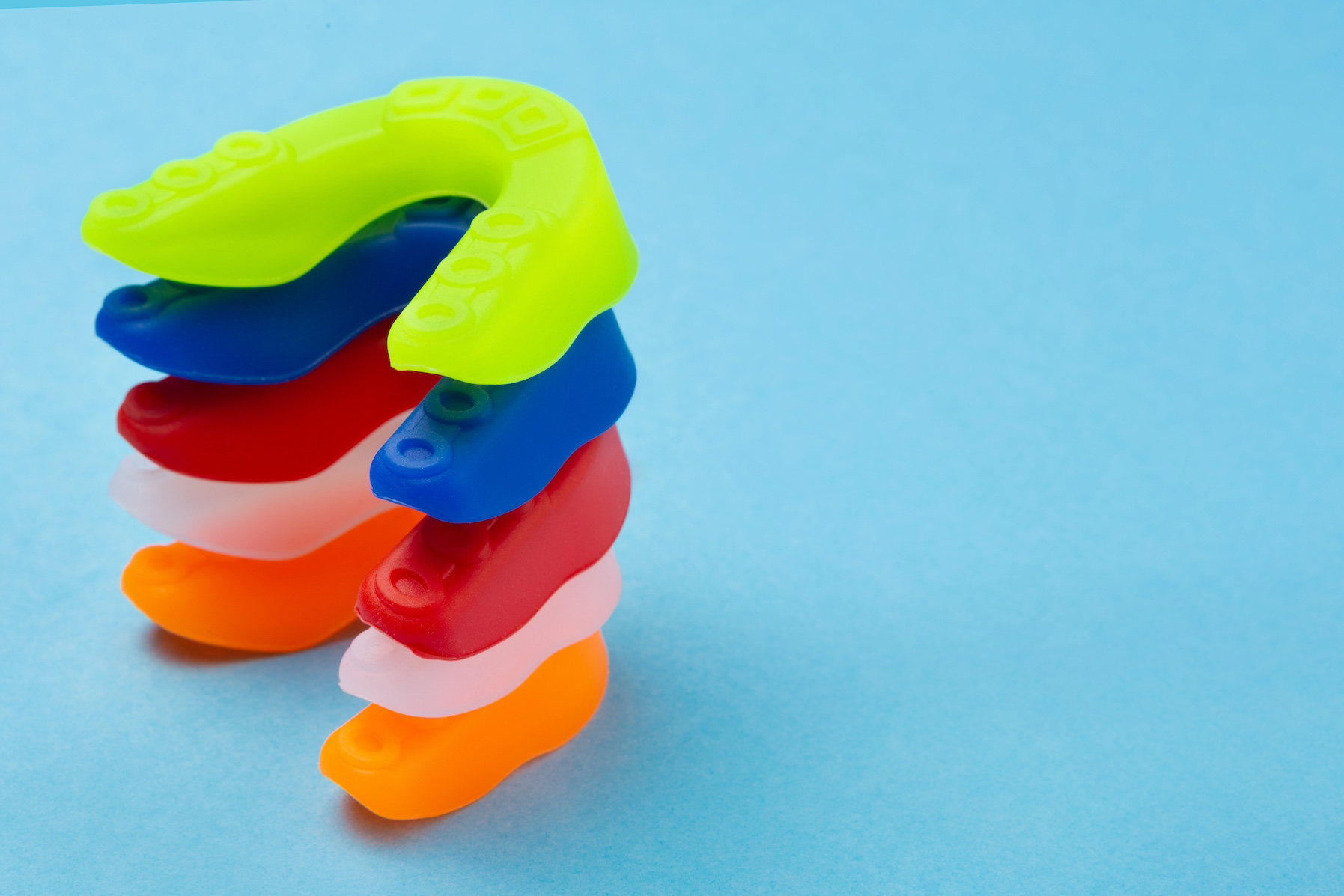Sports are an excellent way to stay active, build camaraderie, and enjoy the thrill of competition. Whether you’re a professional athlete or just enjoy weekend games with friends, one thing is certain: sports can sometimes be rough, and injuries are often a part of the game.
While many athletes are well-prepared with helmets, pads, and other protective gear, one crucial aspect often gets overlooked – protecting your teeth.
In this blog post, we’ll explore the importance of mouthguards in preventing sports-related dental injuries while enjoying your favorite sports and activities.
The Risk of Sports-Related Dental Injuries
Sports injuries can happen in the blink of an eye. A stray elbow in basketball, a high-speed pitch in baseball, or an accidental collision in soccer – all of these scenarios can lead to dental injuries. The consequences of these injuries can range from chipped or cracked teeth to completely knocked-out teeth, and even damage to the jaw and lips.
Not only can these injuries be painful, but they also come with significant financial costs. Dental treatments for sports-related injuries can include emergency care, restorative procedures, and even ongoing dental work, such as dental implants or braces. The medical bills and time spent in the dentist’s chair can add up quickly, making prevention through mouthguards a wise investment.
The Role of Mouthguards in Preventing Dental Injuries
A mouthguard is a protective device that covers your teeth and gums, acting as a cushion to absorb and distribute the impact forces that can occur during sports activities. They are typically made of flexible, resilient materials and are designed to fit comfortably in your mouth.
Here’s how mouthguards help prevent sports-related dental injuries:
Shock Absorption
Mouthguards work by absorbing and spreading the force of an impact. When a blow to the face occurs, the mouthguard disperses the energy across the teeth and jaw, reducing the risk of dental injuries.
Tooth Protection
Mouthguards create a barrier between the upper and lower teeth, preventing them from coming into direct contact with each other. This significantly reduces the chances of chipped, cracked, or knocked-out teeth.
Jaw Protection
In addition to tooth protection, mouthguards provide some degree of protection to the jawbone. They can help reduce the risk of jaw fractures and dislocations, which can be incredibly painful and require extensive medical treatment.
Preventing Soft Tissue Injuries
Mouthguards not only protect teeth and jaws but also the soft tissues in the mouth, including the lips, cheeks, and tongue. By covering these areas, mouthguards help prevent lacerations and bruises during sports activities.
Types of Mouthguards
There are several types of mouthguards available, each with its own set of advantages and disadvantages:
- Stock Mouthguards: These are pre-made, ready-to-wear mouthguards found in most sporting goods stores. While inexpensive and readily available, they often provide a poor fit and limited protection.
- Boil-and-Bite Mouthguards: These mouthguards are made of thermoplastic material that softens when boiled. After softening, you bite into the material to create a custom fit. While they offer better protection than stock mouthguards, their fit can still be somewhat imprecise.
- Custom-Fitted Mouthguards: Custom-fitted mouthguards are created by a dentist using an impression of your teeth. This ensures a snug and comfortable fit, offering the best protection against dental injuries. Although they are more expensive than other options, the investment in a custom-fitted mouthguard is well worth it, especially if you are serious about your sport.
Taking Care of Your Mouthguard
Once you’ve chosen the right mouthguard, it’s essential to take proper care of it to ensure its longevity and effectiveness. Here are some tips for maintaining your mouthguard:
Clean it regularly
Rinse your mouthguard with cold water before and after each use. Periodically, clean it with mild soap and lukewarm water. Avoid using hot water, as it can distort the shape of the mouthguard.
Keep it in a case
When you’re not using your mouthguard, store it in a clean, ventilated case. This helps protect it from dirt, debris, and damage.
Inspect for damage
Regularly check your mouthguard for signs of wear and tear, such as cracks or tears. If you notice any damage, replace it promptly.
Avoid chewing on it
Some people have a habit of chewing on their mouthguards, which can weaken the material. Avoid this to prolong the life of your mouthguard.
Replace when necessary
Over time, mouthguards can lose their shape and effectiveness. Replace your mouthguard as recommended by your dentist or the manufacturer.
Conclusion
Sports-related dental injuries can be painful, costly, and have long-lasting consequences. Fortunately, mouthguards offer a simple yet effective solution to prevent these injuries and protect your smile and overall oral health. At Triangle Dentistry, we are committed to keeping your smile safe while you enjoy your favorite activities.
Don’t wait until an accident happens; take proactive steps to protect your teeth. Schedule an appointment with Triangle Dentistry today and get your custom-fitted mouthguard. Our experienced team is here to ensure that your sports experience remains fun and injury-free.
